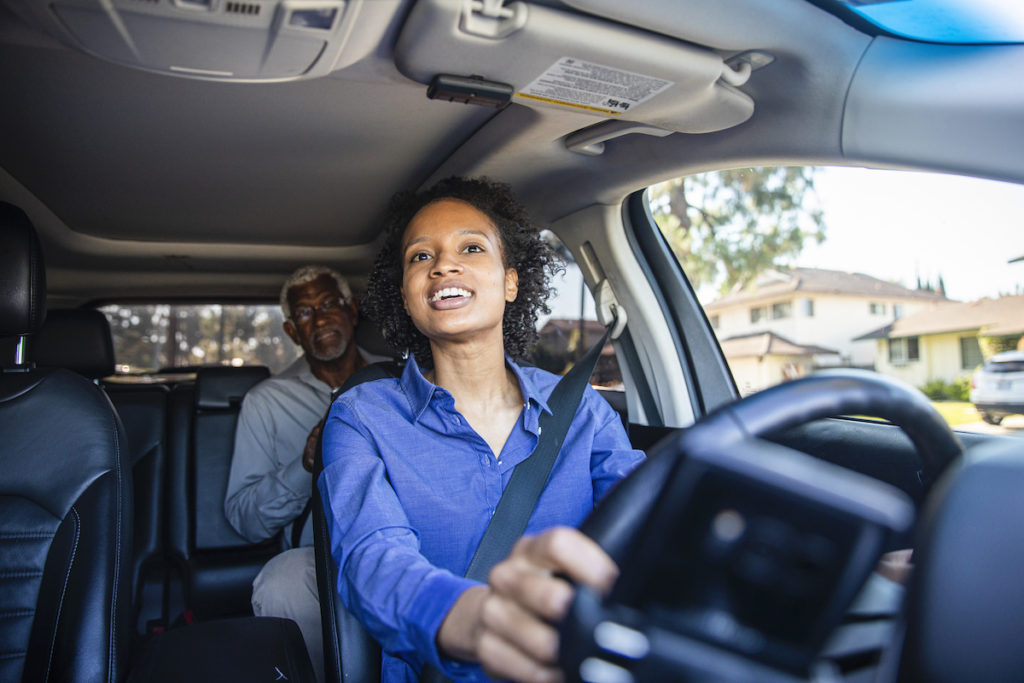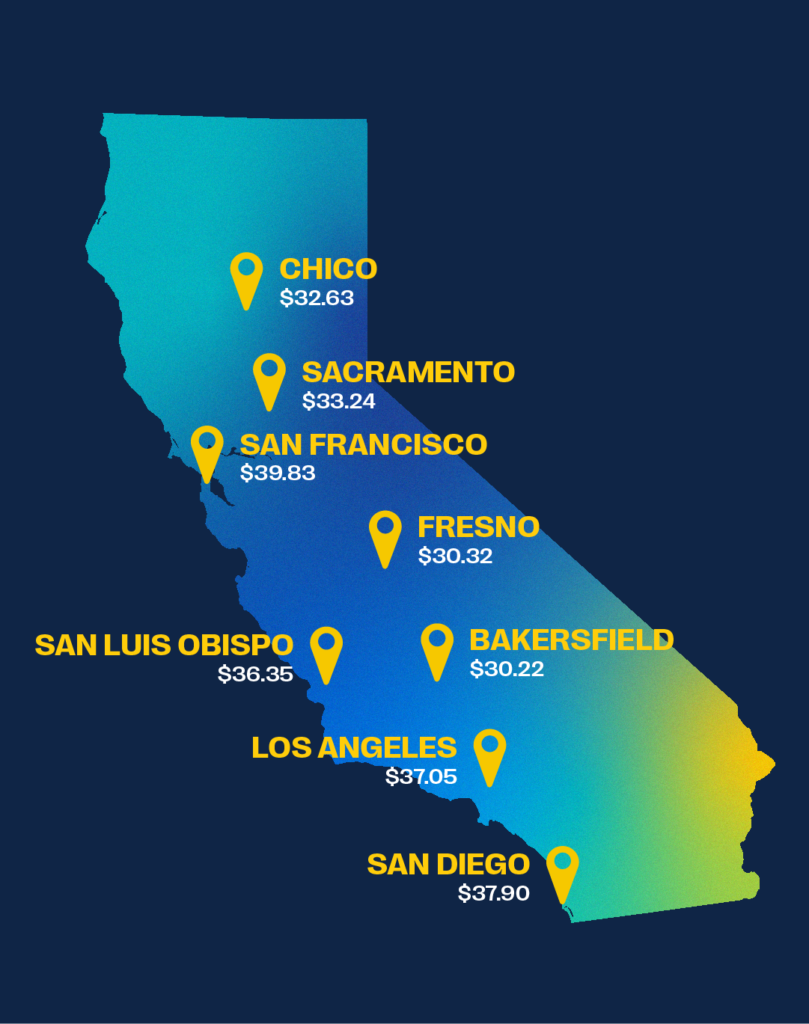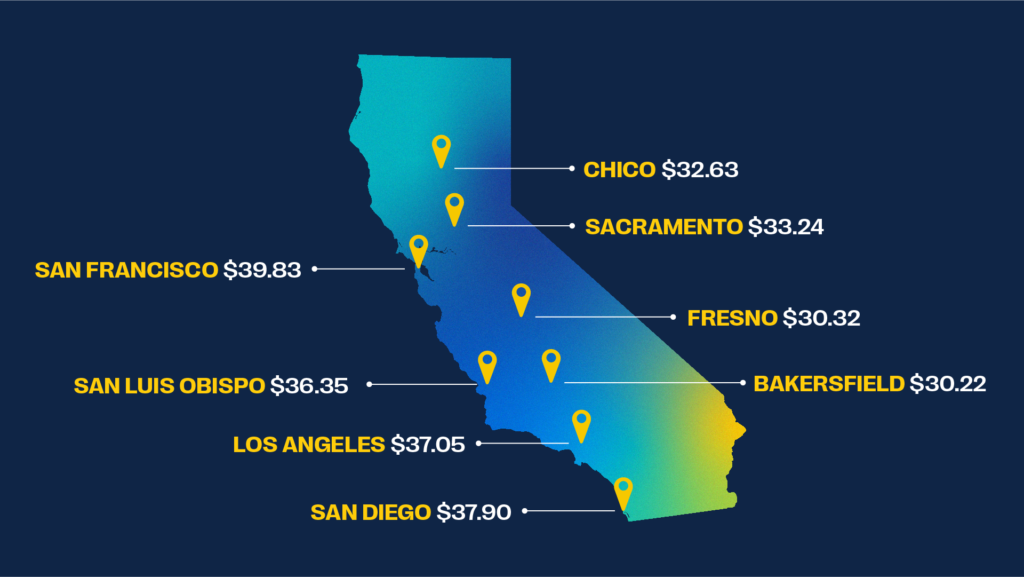PROPOSITION 22 RESOURCE CENTER
In November 2020, California voters overwhelmingly approved Proposition 22, a statewide ballot measure that protected the ability of app-based rideshare and food delivery drivers to work as independent contractors with access to guaranteed earnings and new benefits. As independent contractors, drivers maintain control over when, where and how long they work
WHAT DOES PROP 22 PROVIDE?
Prop 22 supports drivers by requiring app-based platforms to provide:
EARNINGS GUARANTEE
HEALTH CARE STIPEND
OCCUPATIONAL ACCIDENT INSURANCE
PROTECTION AGAINST DISCRIMINATION AND SEXUAL HARASSMENT ON THE JOB
HOW DOES THE MINIMUM EARNINGS GUARANTEE WORK
Prop 22 also requires 100% of tips paid to drivers on top of the minimum earnings guarantee, payments of 34 cents per mile for expenses, occupational accident insurance for on-the-job injuries, and a healthcare stipend for qualified drivers


Prop 22 also implements strong new public safety protections benefiting customers including
- Background checks of drivers
- Mandatory safety training of drivers
- Zero tolerance for alcohol and drug offenses
- A cap on driver hours per day to prevent sleepy driving
HOW DOES THE MINIMUM EARNINGS GUARANTEE WORK
Drivers are guaranteed to earn at least 120% of the local minimum wage in the location they are driving. That means drivers know they will not make less than this standard before they accept a ride or delivery. They also have the ability to earn more on their own terms
Prop 22 also requires 100% of tips paid to drivers on top of the minimum earnings guarantee, payments of 30 cents per mile for expenses, occupational accident insurance for on-the-job injuries, and a healthcare stipend for qualified drivers
A recent UC Riverside study found that drivers are making more than $34/hour on average since Prop 22’s implementation. Across all metropolitan regions in California, average tipped gross earnings exceeded $30 per engaged hour while average untipped gross earnings exceeded $20 per engaged hour.

A recent UC Riverside study found that drivers are making more than $34/hour on average since Prop 22’s implementation. Across all metropolitan regions in California, average tipped gross earnings exceeded $30 per engaged hour while average untipped gross earnings exceeded $20 per engaged hour.


No. One hundred percent of tips go to app-based drivers, and companies cannot reduce the amount they pay drivers on account of tips. Tips are paid on top of all wages, expense reimbursements, and any company-specific incentives
Under Prop 22, drivers may have access to a health care stipend up to 100% of the average employer payment toward a Covered California Bronze Plan, or about $490.00 per month to a driver on average. And as health care costs increase the contribution increases.
Drivers can earn 100% of the average employer payment toward a Covered California Plan if they average at least 25 hours per week. If drivers average at least 15 hours per week, they can earn 50% of the average employer payment. Drivers can also earn multiple contributions if they work with multiple platforms.
The eligibility criteria for health care benefits under Prop 22 are more generous than what is required by the Affordable Care Act, which only requires health care to be provided to those working at least 30 hours per week, with no mandated employer benefits for most part-time workers.

WHAT ARE THE DETAILS OF THE SAFETY TRAINING?
- Collision avoidance and defensive driving techniques
- Identification of collision causing elements such as excessive speed, DUI, and distracted driving
- Recognition and reporting of sexual assault and misconduct
- For on-demand drivers delivering prepared food or groceries, food safety information relevant to the delivery of food, including temperature control
HOW DOES THE OCCUPATIONAL ACCIDENTAL INSURANCE AND OTHER BENEFITS WORK?
- Coverage for medical expenses incurred up to at least $1 million
- Disability payments and death benefits commensurate with those provided by workers compensation
